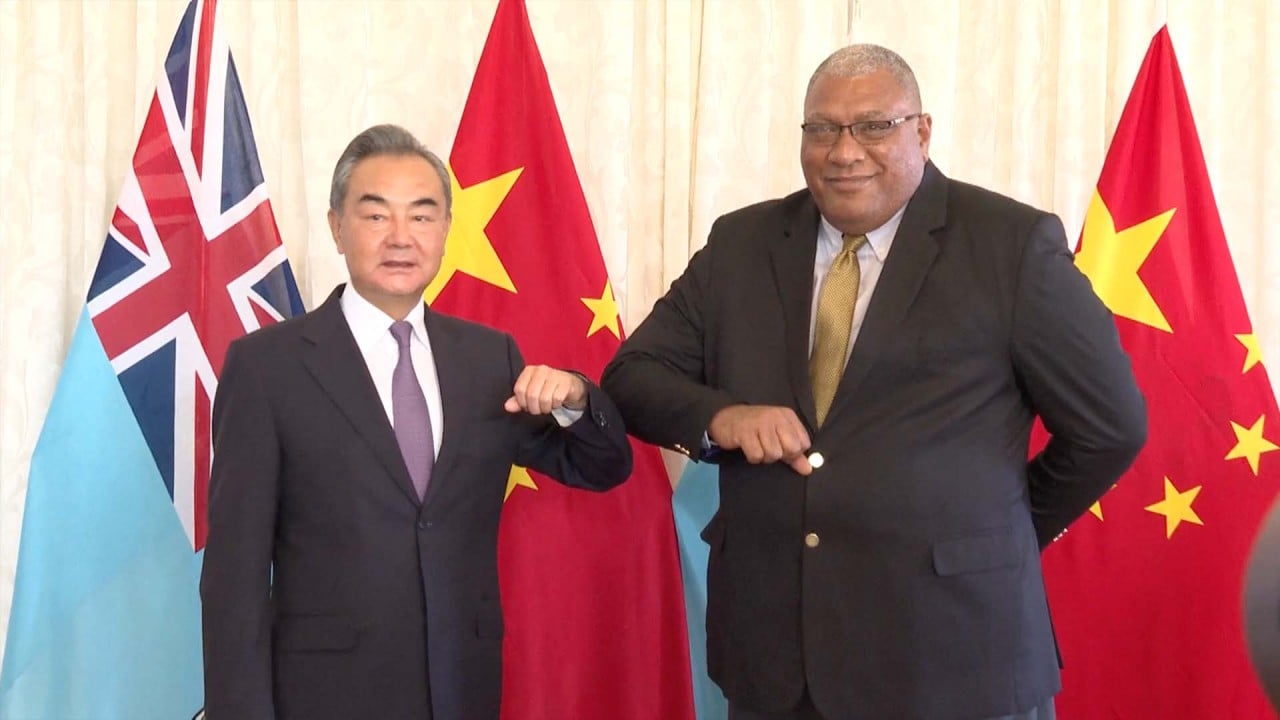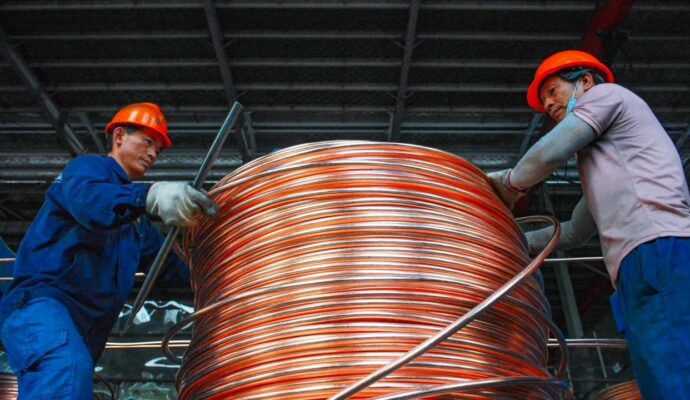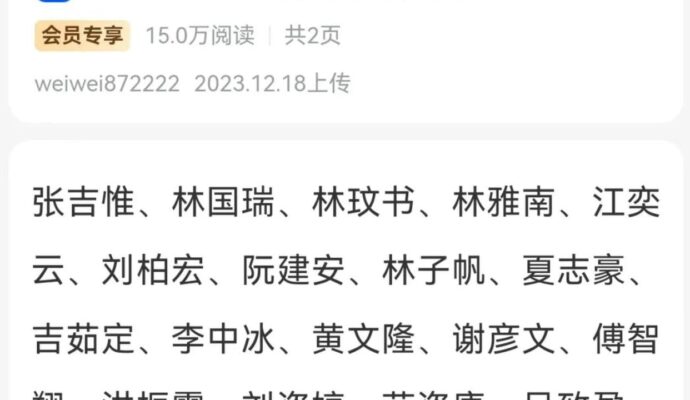“Our friends in China know us,” Prime Minister James Marape told parliament on Wednesday, when debate on the US deal began.
“China and Beijing also know that this government gave Beijing priority over Taipei … the Chinese government knows exactly where the heart of this government is. And that is to promote national interests, not geopolitical interests or their interests.”
“We relate to trade with them and we never compromise on trade with them,” he added.
Australia has for decades been the main security partner for island nations in the southwestern Pacific, but the region has emerged to be yet another theatre for US-China competition as both seek to expand their political, economic and security influence.
Chinese companies have long eyed PNG’s wealth of natural resources – from oil to minerals, natural gas, timber and fish – and have invested in mines, hydropower stations and basic infrastructure such as highways, telecommunications and housing.
But China’s inroads into PNG and other southwestern Pacific countries have largely remained restricted to trade. An eight-nation tour of the region by then Chinese foreign minister Wang Yi in May last year failed to produce a security or policing cooperation deal due to a lack of consensus.
Where diplomacy has succeeded, such as striking a security deal with the Solomon Islands, it has prompted greater engagement by the US and its allies Japan and South Korea to counter China’s influence in the region.
Marape said on Wednesday that the defence cooperation agreement would allow PNG to work with the US in reconnaissance, surveillance, exchange of classified information and arms procurement, but not offer a “basis for military operations to be staged” in the country.
“We are increasingly becoming aware that the traditional security alliances are inadequate to cover the current global, regional and national security challenges,” he said.
Stewart Firth, a research fellow at the Australian National University’s Pacific affairs department, said that while Marape was conscious of his country’s “extreme military weakness”, it would be an exaggeration to expect the PNG bases to be used to support US troops in a potential attack on Taiwan by Beijing.
“That might be drawing a long bow, but the arrangement would certainly complement the new base plans for the Philippines, whose northern islands are only a few hundred kilometres from Taiwan,” Firth said.
“The arrangement would support Guam by creating an arc of US military power from Australia to Guam and beyond.”
The Philippines in April said it would give the US access to four more of its bases, three close to Taiwan and another further south next to the South China Sea, the site of several territorial disputes involving Beijing.
Firth said Chinese investment in PNG was unlikely to fall because of the new pact, because infrastructure-building had been good for Chinese companies and firms often mattered more than the Chinese government in the region.
“China is already on the back foot in the Pacific, following the foreign minister’s unsuccessful tour of the region last year.”
Firth said China appeared to have misunderstood the long tradition of regionalism among Pacific islands to work in concert. This put its proposed “Common Development Vision” with 10 Pacific countries, which included security cooperation, out of reach despite Wang’s multinational trip.
“I think this [PNG-US] agreement will set China further back in the region,” he said.
Many of the Pacific nations have acted as a bloc to address common security challenges, including illegal fishing and rising sea levels, which threaten their economy and even existence.
Some of the illegal fishing has been carried out by Chinese fishers, who make up the world’s biggest industrial distant-water fishing fleet.
The presence of Chinese ships in the southwestern Pacific has also been unwelcome.
Palau recently sought US help to deter “unwanted activities” around its coasts by mainland Chinese vessels.
During a visit to Japan on Thursday, President Surangel Whipps Jnr said three Chinese boats had entered “uninvited” into Palau’s waters since he took office in 2021. The US was responsible for Palau’s security and needed to help deter unwanted activities, he said.
Beijing’s foreign ministry said the Chinese vessels were in the area to seek shelter and did not conduct surveys or investigations.
Palau, one of the four Pacific nations that recognise Taipei, has no official ties with Beijing.



